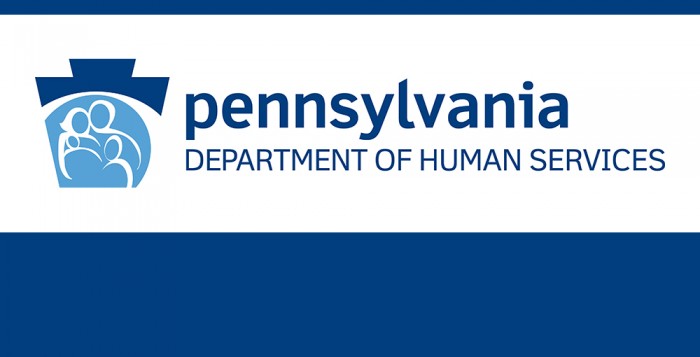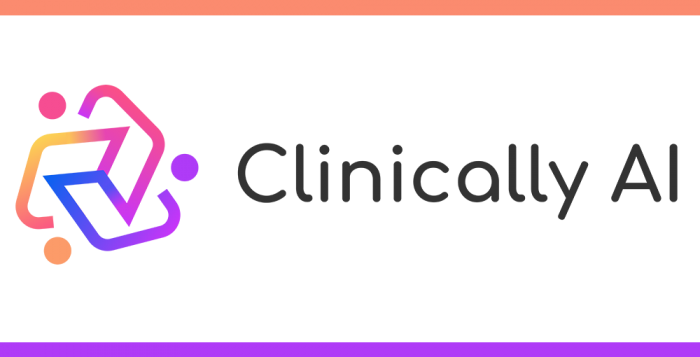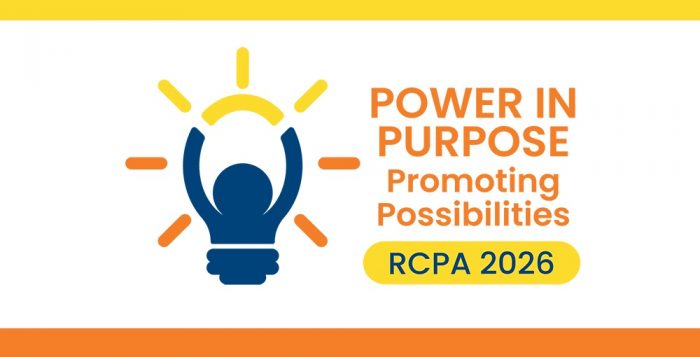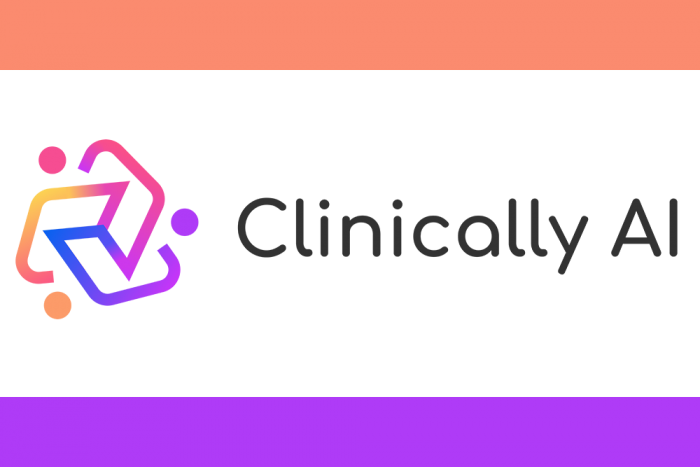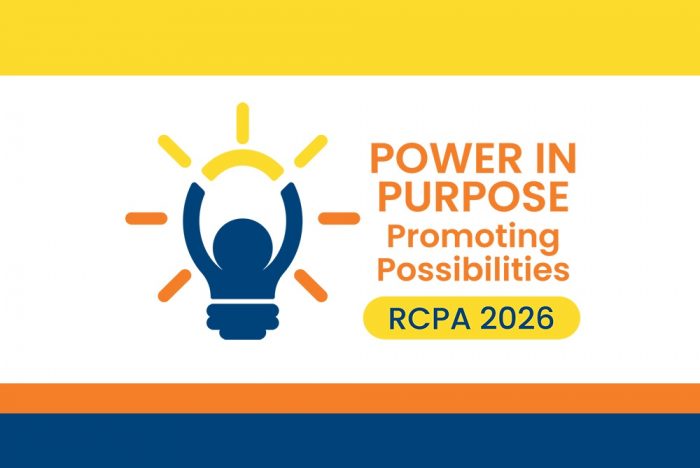DHS Shares Video on SNAP Changes
Over the past few months, there have been important changes to SNAP that may affect Pennsylvanians’ eligibility for the program.
To help SNAP recipients and those who work with them understand what’s new, the PA Department of Human Services (DHS) has posted a new video to their YouTube channel. The video explains changes to SNAP over the past six months, including who is subject to new work and reporting requirements, how to meet those requirements, and tools that are available to help Pennsylvanians meet the requirements.
ANCOR Listening Session on Fraud RFI Announced for March 6
Reminder: RCPA and RCPA Partner Clinically AI to Hold Webinar on AI Learning Collaboratives March 10
Deadline for Workshop Proposals for RCPA’s 2026 Annual Conference is March 23
Time is running out to submit your workshop proposal for the RCPA 2026 Conference Power in Purpose: Promoting Possibilities. The Conference will be held September 29 – October 2 at the Hershey Lodge for a statewide audience, and RCPA’s Conference Committee is looking for workshop proposals in every area for possible inclusion, particularly those that assist providers in developing and maintaining high-quality, stable, and effective treatments, services, and agencies in an industry where change is constant.
The deadline for submissions is COB Monday, March 23, so don’t wait to submit your proposals! The committee looks for presentations that:
- Discuss strategies for C-Suite leadership to advance their organization with adapting to challenges and opportunities;
- Provide guidance on building a culture of a committed workforce, including recruitment and employee development as well as effective remote workforce strategies;
 Highlight new policy, research, and treatment initiatives, such as the use of artificial intelligence and technology in service provision;
Highlight new policy, research, and treatment initiatives, such as the use of artificial intelligence and technology in service provision;- Provide specific skills and information related to individual and organizational leadership development and enhancement;
- Discuss advanced ethics practices and suicide prevention; and/or
- Address system changes that affect business practices, including integrated care strategies, value-based purchasing, performance-based contracting, acquisitions and mergers, and alternative payment models.
The committee welcomes any proposal that addresses these and other topics essential to brain injury, medical rehabilitation, mental health, substance use disorder treatment, children’s health, aging, physical disabilities, autism, and/or intellectual/developmental disabilities. Members are encouraged to consider submitting, and we highly encourage you to forward this opportunity to those who are exceptionally good speakers and have state-of-the-art information to share.
The Call for Proposals (featuring a complete listing of focus tracks) and accompanying Guidelines for Developing Educational Objectives detail requirements for submissions. The deadline for submissions is COB Monday, March 23, 2026. Proposals must be submitted electronically with the form provided; confirmation of receipt will be sent. Proposals submitted after the deadline may not be considered.
 If the proposal is accepted, individuals must be prepared to present on any day of the conference. Workshops are 90 minutes in length. If the topic requires an in-depth presentation, a double session can be scheduled for a total of 180 minutes. At the time of acceptance, presenters will be asked to confirm the ability to submit workshop slides and handouts electronically two weeks prior to the conference. Individuals unable to meet this expectation may not have their materials available to participants during the conference.
If the proposal is accepted, individuals must be prepared to present on any day of the conference. Workshops are 90 minutes in length. If the topic requires an in-depth presentation, a double session can be scheduled for a total of 180 minutes. At the time of acceptance, presenters will be asked to confirm the ability to submit workshop slides and handouts electronically two weeks prior to the conference. Individuals unable to meet this expectation may not have their materials available to participants during the conference.
Individuals are welcome to submit more than one proposal; however, we ask that you submit no more than three total. Notification of inclusion for the conference will be made via email by Monday, May 11, 2026. Questions may be directed to Carol Ferenz, Conference Coordinator.
DOL Issues Proposed Rule on Worker Classification
The U.S. Department of Labor’s (DOL) Wage and Hour Division (WHD) published a proposed rule concerning the process and criteria used to determine a worker’s classification as an employee or an independent contractor under the Fair Labor Standards Act and related federal laws.
This proposed rule would rescind DOL’s 2024 Final Rule addressing the classification of independent contractors and replace it with an analysis for employee classification similar to the one adopted by DOL in 2021. The classification analysis in the proposed rule would:
- Apply an “economic reality” test to determine whether a worker is in business for himself or herself as an independent contractor or is an employee economically dependent on an employer for work;
- Identify and explain two “core factors” to help determine if a worker is economically dependent on an employer for work or in business for him- or herself:
- The nature and degree of control over the work; and
- The worker’s opportunity for profit or loss based on initiative and/or investment;
- Identify other factors to help determine a worker’s status as an employee or independent contractor, including the amount of skill required for the work, degree of permanence of the working relationship, and whether the work is part of an integrated unit of production;
- Advise that the actual practice of the worker and the potential employer is more relevant than what may be contractually or theoretically possible; and
- Provide eight fact-specific examples applying the factors to real-life circumstances.
Last year, DOL published guidance advising WHD field staff on the analysis to apply when determining employee or independent contractor status. That guidance instructed agency investigators to stop applying the analysis from DOL’s 2024 rule in current enforcement matters but, instead, rely on the principles outlined in Field Assistance Bulletin No. 2025-1 and Fact Sheet #13.
The 2024 final rule prompted a number of federal lawsuits challenging its legality. As a result, DOL said last year that it would be “…reconsidering the 2024 Rule, including whether to rescind the regulation.”
DOL will be accepting comments on this proposed rule through 11:59 pm (ET) April 28, 2026.
DHS Senate Budget Hearing Summary and RCPA Divisional Highlights
RCPA Member McAuley Ministries Awards Over $2 Million in Grants to 27 Local Nonprofit Organizations

Press release by McAuley Ministries: Published February 26, 2026
Excerpt below:
PITTSBURGH (February 26, 2026) – McAuley Ministries, Pittsburgh Mercy’s grant-making foundation, awarded 29 grants totaling over $2 million. The grants help fund capacity building, education, empowerment, essential needs & social services, legacy programs, and whole-person health initiatives in Pittsburgh’s Hill District, Uptown, and West Oakland communities, its three focus neighborhoods, collectively referred to as the Mercy Corridor.
RCPA Member KidsPeace and Lehigh Carbon CC Launch Innovative Training/Certification Partnership for Mental and BH Workforce
Immigration Enforcement Advisory for Health Care and Social Services Facilities
Message from the PA Department of Human Services (DHS):
Under the current federal administration, the U.S. Department of Homeland Security (U.S. DHS) has lifted restrictions that previously prohibited Immigration and Customs Enforcement (ICE) and Customs and Border Protection (CBP) officers from carrying out immigration enforcement actions, including arrests, in protected areas such as medical and behavioral health care facilities and social services establishments. It is now possible that U.S. DHS may attempt to conduct immigration enforcement activities in these settings.
The Pennsylvania Department of Human Services, along with the departments of Aging, Drug and Alcohol Programs, and Health, has prepared a non-regulatory advisory to provide general information about federal law applicable to immigration enforcement activities at health care and social services facilities. We also advise facility leadership and counsel to develop a written policy and standard operating procedures for what to do if immigration enforcement agents arrive on facility property or seek information about individuals you serve for immigration enforcement reasons.
In developing these policies and procedures, the Pennsylvania Department of Human Services advises that you consider:
- Designating legal and administrative point person(s) by name and phone number who will interact with immigration agents and review legal documents;
- Planning for how your facility will respond to requests for information, requests to enter non-public spaces to conduct an arrest, and immigration enforcement activity in public spaces;
- Engaging in advance with stakeholders and necessary resources; and
- Minimizing disruption to individuals served.
This advisory does not provide legal advice. Consult a licensed attorney or accredited representative for legal questions about a specific situation.
Thank you for your service to Pennsylvania.










